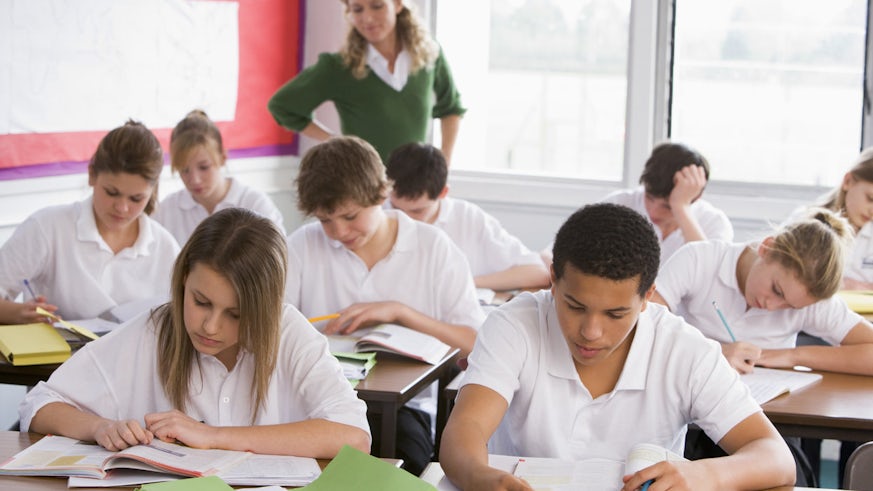Pupil and teacher perceptions of teaching
14 September 2016

Fewer than half of young secondary school pupils think their views are taken seriously by those educating them, a major new study has found, while the majority of their teachers disagree.
These are central findings of a survey of 12 and 13-year-olds and their teachers at schools in Wales, analysed by Dr Kevin Smith of Cardiff University and presented at the British Educational Research Association annual conference.
Undertaken as part of a larger study of school education in Wales, carried out by the Wales Institute of Social & Economic Research, Data & Methods (WISERD), the survey of 407 Year 8 pupils and 215 teachers in 13 schools, found that only 42 per cent of the young people said their views were “listened to and taken seriously by school staff”, compared to 90 per cent of the teachers saying so.
That finding of a large divide between the views of teachers and those of many of their pupils was supported by both groups’ responses to other questions, with seemingly serious educational implications.
The research found that only 43 per cent of the youngsters agreed with the statement “your school sets educational goals appropriate for each pupil,” compared to 92 per cent of the adults.
There was only a slightly smaller divide when the question posed was “the school staff have high expectations of me”, with 59 per cent of the young people agreeing as opposed to 95 per cent of the teachers.
The study also surveyed the same pupils two years later, when they were in Year 10, and found answers to the question “My views are listened to and taken seriously by school staff” were even less positive, with only 37 per cent of the Year 10s agreeing.
Dr Smith said: “The vast majority of teachers in our survey felt they were doing their best to meet pupils’ needs.
“However, they felt their teaching was undermined by too many changes in education policy in too little time, the increasingly bureaucratic nature of teaching stemming from an increased concern over ‘teacher accountability’, and the emphasis on pupil results in high-stakes exams.”
This latter issue, he said, meant that teachers often felt constrained in seeing pupils in any other terms than as future exam statistics. “The increasing use of high-stakes accountability – the notion that staff and pupils are judged by exam numbers – and the use of teacher-ready teaching materials means that there is less scope for interventions in the classroom which are personalised towards the individual student,” he added.
However, the study did not provide entirely bad news for schools and teachers in Wales. Some 76 per cent of the pupils surveyed in Year 8, and 75 per cent of the same pupils in Year 10, agreed with the statement “My school cares about how much I improve my studies”, with only five per cent of Year 8s actively disagreeing, although this rose to 10 per cent among the Year 10s.
The number of young people agreeing with the statement “the school staff have high expectations of me” rose from 59 per cent in Year 8 to 68 per cent in Year 10. And 76 per cent of Year 8s, rising to 83 per cent of those in Year 10, agreed that “Overall, I make a good effort in class"
Dr Smith’s work is focusing on the extent to which the principles of the United Nations Convention on the Rights of the Child, which promotes the right of young people to develop their “personalities, talents and abilities to the fullest” are being met in schools.
WISERD draws together and build upon the existing expertise in quantitative and qualitative research methods and methodologies at the universities of Aberystwyth, Bangor, Cardiff, South Wales and Swansea. The WISERD hub is based at Cardiff University.